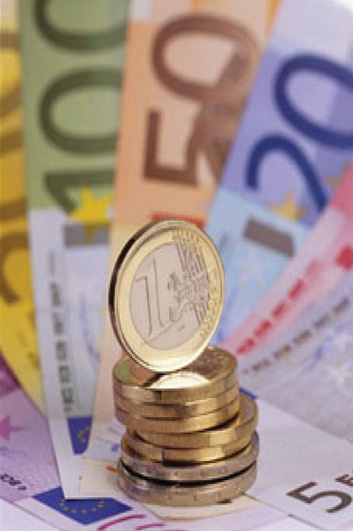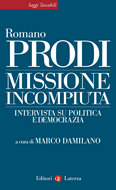A big step towards fiscal federalism in Europe
 A big step towards fiscal federalism in Europe
A big step towards fiscal federalism in Europe
By Romano Prodi published on Financial Times of May 20 2010
When the euro was born everyone knew that sooner or later a crisis would occur. It was inevitable that, for a such a bold and unprecedented project, in some countries (even the most virtuous ones), mistakes would be made and unforeseeable events occur. It was also clear that the stability and growth pact was – as I have said before – “stupid”, not because it was mistaken in its objectives, but because it was founded on purely mathematical parameters without any discretionary powers or political instruments to enforce it. Germany and France were the first countries to violate it, although not in a destabilising way: their finance ministers decided to ignore the objections of the European Commission (possibly because they were “too big to fail”).
Due to political difficulties it was not possible to protect the euro. I was warning years ago that, through no one’s fault in particular, extraordinary events could occur that would force joint co-ordination of fiscal policies. Then the Greek crisis arrived – serious in terms of the sins that caused it but easily solvable, considering the modest size of the country’s economy.
Yet swift action was lacking, which made it impossible to reach a quick agreement on fiscal discipline. Elections in the German state of North Rhine-Westphalia delayed the realisation that the Greek crisis presented an opportunity to take the inevitable steps towards economic governance that were not possible when the euro was created. This implies new institutions or bodies to monitor the budgets of member states, enforce fiscal discipline and impose punishments for repeat offenders of budget discipline rules.
Many countries, however, are still not willing to entertain such a radical change to economic sovereignty, even though a possible crisis (not necessarily the Greek one) has been the subject of recurrent discussions in political and academic circles.
We are therefore at a crossroads. The only alternative to greater co-ordination of economic policies is dissolution of the euro. This would be a cataclysmic blow to the European project and, for Germany, particularly devastating. Despite the restructuring of the past decade, German economic competitiveness would be greatly reduced by currency devaluations in peripheral eurozone countries. As a consequence, its trade surplus would quickly dry up.
I pushed hard to get Italy into the eurozone to give my country the discipline it needed to end the string of currency devaluations that had left its economy fragile and undermined its public finances, despite the existence of a strong manufacturing sector.
I therefore consider the recent decisions made in Brussels as a very important step towards the gradual creation of a European fiscal federalism. Combining the resources of the eurozone countries and the Commission with those of the European Central Bank is a step beyond the stability and growth pact. In fact, creating bodies capable of preventative action and successful intervention would imply that the pact has been replaced by a more muscular co-ordination.
The biggest part of the new European stabilisation mechanism fund, worth €440bn ($540bn, £380bn), consists of national funds from the 16 eurozone countries, and is limited to three years. But we all know how difficult it is to withdraw from such an obligation.
Even though political divisions and delays in decision-making have profoundly weakened the euro and triggered market turmoil, the decision to underpin the euro with mutual financial co-operation is a big step forward.
Uncertainty will continue because many operational aspects of implementing the decisions are quite broad in outline. However, the ECB, the Commission and most eurozone countries have been given stronger powers and more far-reaching tasks and responsibilities than in the past, and markets will take this into account.
Questions remain about how these powers will be put into effect, as countries face political turbulence, and in some cases civil unrest, in the face of austerity measures. Yet, even though this rescue came very late, at an extremely high cost, and with damage to Europe’s image, the ship of the European Union is now sailing in the right direction. The Brussels agreement has shown there is no viable alternative to the euro.
The writer is former Italian prime minister and was president of the European Commission, 1999-2004






















